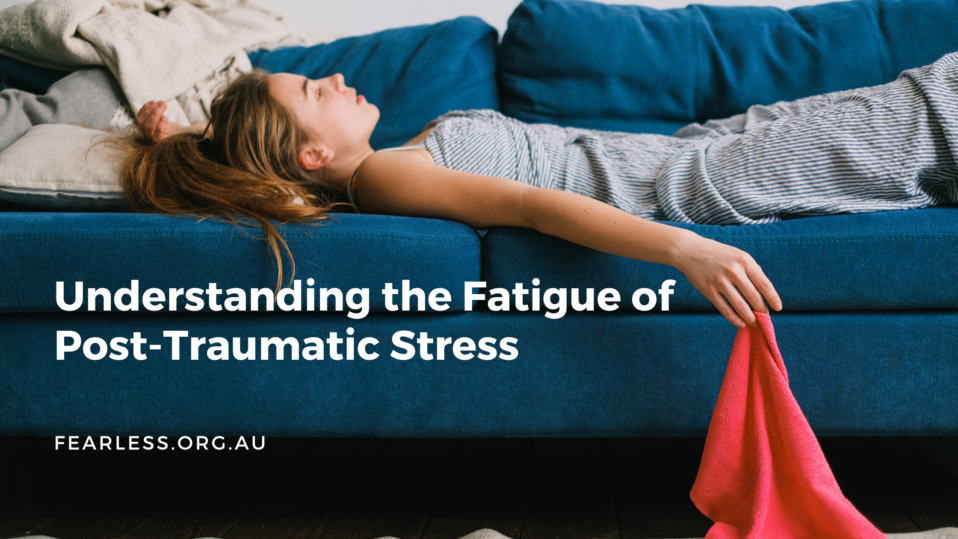Post-Traumatic Stress Disorder (PTSD) is a complex and challenging condition that affects millions of people worldwide. Among the array of symptoms that individuals with PTSD experience, one of the most prevalent yet often overlooked is fatigue. The profound exhaustion accompanying PTSD can significantly impact daily life, hindering productivity and overall well-being.
In this blog, we delve into the reasons behind the fatigue associated with PTSD and explore strategies to find relief and regain vitality.
The Link Between PTSD and Fatigue
When someone undergoes a traumatic event, their nervous system is thrust into a heightened state of alertness as a survival response. In individuals with PTSD, this hyperarousal often becomes chronic, leading to an overload on the body and mind. The constant sense of danger and stress can profoundly disrupt sleep patterns, resulting in insomnia or nightmares, and leaving individuals feeling perpetually drained.
Moreover, PTSD can lead to the depletion of vital neurotransmitters like serotonin and dopamine, contributing to a sense of emotional and physical exhaustion. Coping with intrusive memories, flashbacks, and avoidance behaviors can be emotionally taxing, further amplifying the feeling of fatigue.
Navigating the Path to Relief
Understanding the intricate relationship between PTSD and fatigue is the first step towards finding relief. At Fearless, we are dedicated to supporting individuals living with the consequences of trauma and PTSD. Here are some strategies that may help in managing fatigue:
- Seek Professional Support: Working with experienced mental health professionals can provide valuable guidance and therapeutic techniques to address the underlying causes of fatigue.
- Practice Mindfulness: Cultivating mindfulness can help manage stress and promote better sleep patterns, allowing for improved rest and reduced fatigue.
- Engage in Physical Activity: Regular exercise can release endorphins, enhancing mood and reducing feelings of exhaustion.
- Establish a Sleep Routine: Creating a calming bedtime routine can signal to your body that it is time to wind down and prepare for restorative sleep.
- Connect with Supportive Networks: Building strong social connections with individuals who understand and validate your experiences can alleviate emotional fatigue and foster a sense of belonging.
The fatigue experienced by individuals with PTSD is a valid and significant aspect of their journey to healing and recovery. By recognising and addressing this exhaustion, we can take vital steps towards reclaiming vitality and regaining control over our lives. At Fearless, we stand by your side, offering support, understanding, and resources to help you navigate the challenges of living with PTSD.
Remember, seeking help is an act of courage and strength. Together, we can navigate the path to relief and rediscover a life filled with hope and resilience.
About FearLess
FearLess is a charity that works with people living with the consequences of post traumatic stress (often referred to as PTSD). We also help family members in any way affected by it. Our community members come from all walks of life including those living with PTSD and their families or people who want to do their bit to make the lives of people living with post traumatic stress more enjoyable and fulfilling. Our work complements the activities of other community-based organisations and government agencies that provide services to people with post traumatic stress.
This website has been established to provide information about PTSD to the Australian and New Zealand community. The website’s content is not intended to be a substitute for professional medical advice, diagnosis or treatment. You should seek the advice of an appropriately qualified healthcare professional before making decisions about your own circumstances. You should not disregard professional medical advice, or delay seeking it, because of any information contained on this website.



Post a comment